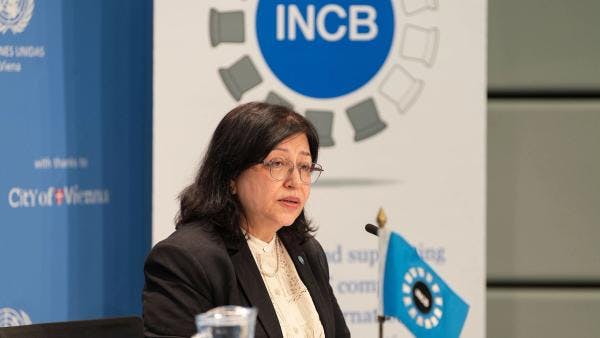UNIS Vienna - CC BY-NC-ND 2.0
Statement by the INCB President on the occasion of Human Rights Day, 10 December 2022
VIENNA, 9 December 2022 - On the occasion of Human Rights Day, the International Narcotics Control Board (INCB) reiterates that an essential condition for the implementation of the three international drug control conventions by States parties is respect for human rights. The adoption and application of drug control measures occurs in a broader context in which States have concurrent legal obligations, including those stemming from human rights instruments, ranging from promotion of equality and non-discrimination towards people who use drugs, prohibition of arbitrary arrest and detention, the right to a fair trial, to protection against all forms of cruel and inhuman punishment. On Human Rights Day 2022, INCB is focusing on the protection of the right to health.
The international drug control treaties require that States parties ensure and not unduly restrict the availability of drugs for medical and scientific purposes. This obligation is also reflected in many international human rights instruments that require protection of the right to health or medical care. Moreover, the international community committed itself to achieving Sustainable Development Goal 3, which focuses on health and wellbeing. In this context, INCB continues to work closely with State parties, the Commission on Narcotic Drugs, the World Health Organization, the United Nations Office on Drugs and Crime, and other international partners to promote adequate availability of and access to controlled substances for medical and scientific purposes. This is done through administration of the estimates and statistical returns system, measures to control international trade, and provision of capacity building support to States parties. Tying in with the initiative of the Chair of the sixty-fifth session of the Commission on Narcotic Drugs to scale up the implementation of international drug policy commitments on improving availability of and access to controlled substances for medical and scientific purposes, the Board is issuing in early 2023 a supplement to its 2022 annual report, entitled No Patient Left Behind: Progress in Ensuring Adequate Access to Internationally Controlled Substances for Medical and Scientific Purposes. The special report builds upon the five supplementary reports issued by INCB from 1989 to 2018 and reviews the current situation based on information reported to INCB by both Member States and civil society, and contains recommendations across a range of areas, including awareness raising, training of health professionals, budgetary measures, and legislation and regulation.
INCB calls upon States to address all existing impediments to availability of controlled substances on their territories, including those stemming from inefficient regulatory systems, attitudes and approaches to prescription and use of controlled substances, and obstacles pertaining to infrastructure and financial systems. As the world continues to witness various emergencies, including natural disasters and those caused by human activity, such as conflicts, resulting in the need for rapid action to provide controlled substances for treatment of populations in the affected territories, INCB reminds the global community of the possibility of utilizing simplified control procedures for the export, transportation and provision of medicinal products containing controlled substances in such acute emergencies.
The slogan of Human Rights Day 2022 is "Dignity, Freedom, and Justice for All". We call on Governments to take urgent action to ensure that all people can enjoy the right to the highest attainable standard of health. This includes access to medicines containing internationally controlled substances and the provision of evidence-based prevention, treatment and social rehabilitation services, as required by the international drug control conventions. INCB reiterates that these services should be evidence-based, free of stigma and discrimination, and implemented in accordance with human rights standards and norms.
